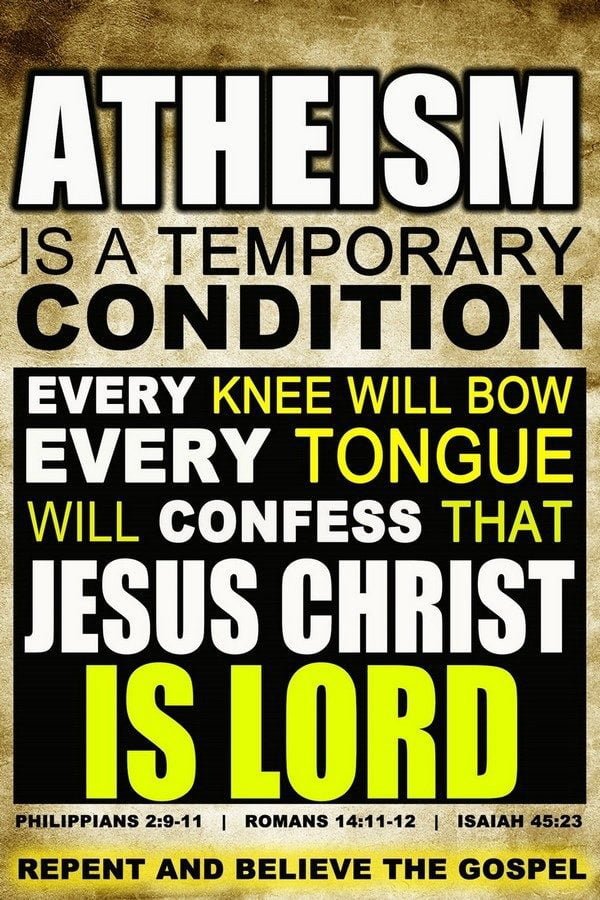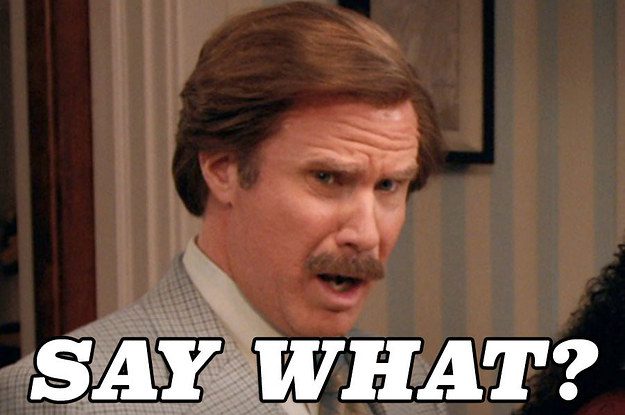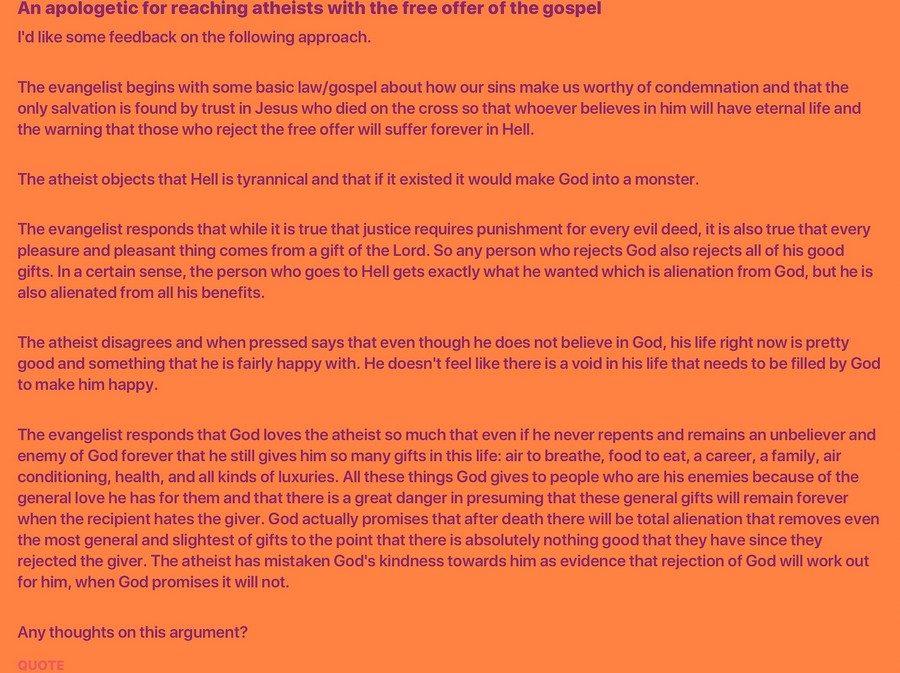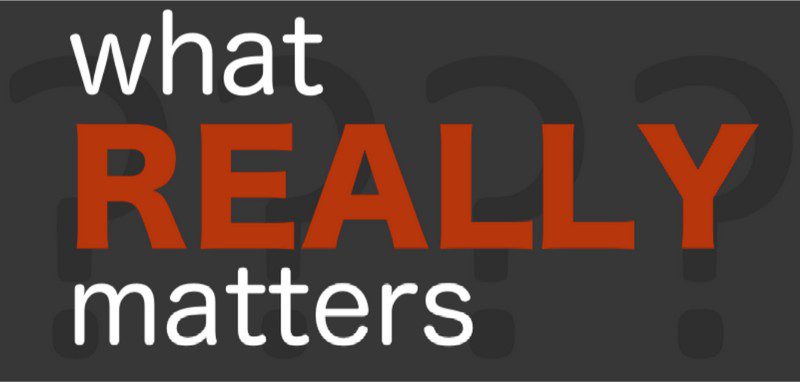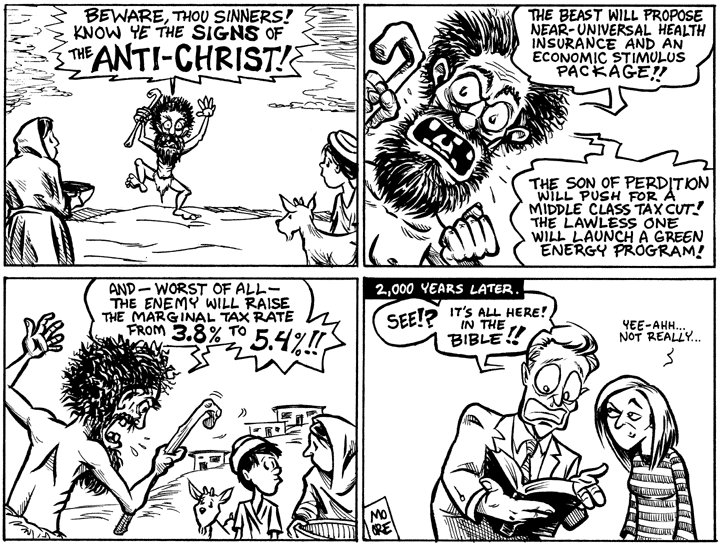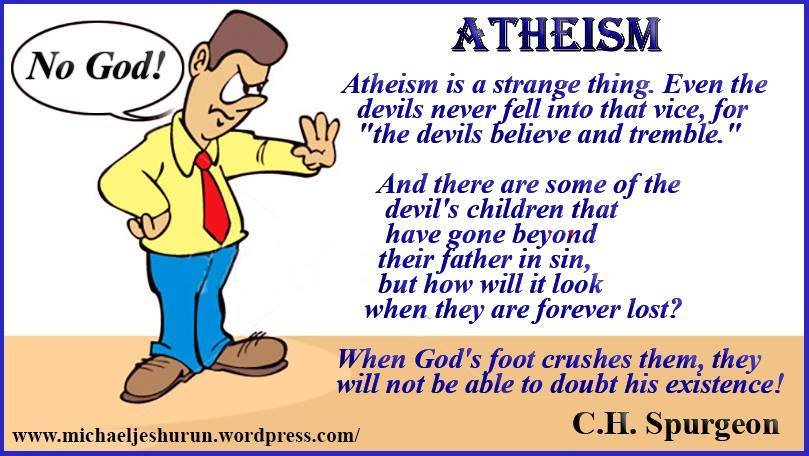 My life continues to be of prurient interest to many Evangelical Christians. Countless Evangelicals, lurking in the shadows, read this blog on a regular basis. Whether they have questions and doubts about Christianity or they see me as a colossal train wreck in the making, many Evangelicals frequent this site, wondering what I will write next. Other Evangelicals consider me a threat to the continued existence of Evangelicalism. In their minds, I am angry, bitter Evangelical-turned-atheist who hates God. I am an ex-preacher who is being used by Satan to lead Evangelicals astray, and they must do everything they can to negate my influence. So they pray (to no avail), write blog posts about me (to no avail), preach sermons about me (to no avail), and gossip about me in private forums. Believing that I am a reprobate who is beyond the reach of God’s saving grace, these Evangelicals see nothing wrong with attacking my character, lying about my past and present beliefs, and even going so far as to attack my wife and children. Revealing their true nature, these zealots rail against me, damning me to Hell and condemning anyone who turns a sympathetic ear towards my words. In behaving this way, they remind Evangelicals-turned-atheists of one the reasons why they walked (ran) away from Christianity.
My life continues to be of prurient interest to many Evangelical Christians. Countless Evangelicals, lurking in the shadows, read this blog on a regular basis. Whether they have questions and doubts about Christianity or they see me as a colossal train wreck in the making, many Evangelicals frequent this site, wondering what I will write next. Other Evangelicals consider me a threat to the continued existence of Evangelicalism. In their minds, I am angry, bitter Evangelical-turned-atheist who hates God. I am an ex-preacher who is being used by Satan to lead Evangelicals astray, and they must do everything they can to negate my influence. So they pray (to no avail), write blog posts about me (to no avail), preach sermons about me (to no avail), and gossip about me in private forums. Believing that I am a reprobate who is beyond the reach of God’s saving grace, these Evangelicals see nothing wrong with attacking my character, lying about my past and present beliefs, and even going so far as to attack my wife and children. Revealing their true nature, these zealots rail against me, damning me to Hell and condemning anyone who turns a sympathetic ear towards my words. In behaving this way, they remind Evangelicals-turned-atheists of one the reasons why they walked (ran) away from Christianity.
Recently, a Fundamentalist woman by the name of Vicki stopped by this blog to share a message with me that God had given her. Evangelical commenters are ALWAYS given one opportunity to say whatever it is they believe God had laid upon their blessed little hearts. I have never in ten years of blogging preempted someone from commenting. Got something to say, Evangelicals? By all means, speak your mind. In fact, I will even let you write a guest post. Say whatever you want (need) to say, but just remember, you only get ONE opportunity to do so. I will, in some instances, grant Evangelicals continued commenting privileges IF they demonstrate they can be kind, thoughtful, and play well with others. Most Evangelicals, once given additional opportunities to put in a good word in for Jesus, will eventually either give up or become frustrated and angry, giving yours truly and the readers of this blog a double barrel shot of Bible as they back their way out of the saloon door.
Take Vicki. Starting a month ago, she left a total of seven comments. On October 6, Vicki wrote:
Well bottom line, I believe the Bible is the word of God and atheists do not so guess I’m done here. Have a nice day.
And with that, she was done until November 3 when she posted the following, using a different name (IP addresses are a bitch):
Interesting that he and Bruce had things in common but each came to different conclusions. Sounds like some similarities they shared. It seems Mr. Breeden recognized something many do not.
https://howtofalldown.wordpress.com/2012/02/24/wwere-apostates-ever-truly-saved-are-they-saved-now/
I responded:
You will find few Tony Breeden fans here. He started his blog as an attempt to deconstruct my life. In doing so, he puts words in my mouth, judges my motives, and denies me control of my own narrative.
In the end, he concludes that I never was a Christian; an absurdity to be sure. I have little respect for people who refuse to let me tell my story on my own terms (and accept it at face value).
Five hours later, Vicki tried to post her previous comment again on a post I had written about Breeden: Fundamentalist Tony Breeden Returns to Deconstructing My Life After a Four-Year Absence. Here’s the text of that post:
On February 12, 2012, a man calling himself Preacher started an anonymous blog, How to Fall Down, so he could methodically deconstruct my past and present life. I did a bit of digital snooping, hoping to find out who this Preacher guy was, and it took me all of a few days to discover that it was the one and the only Reverend Tony Breeden. Breeden used to comment on a previous iteration of this blog until I banned him. Breeden’s deconstruction of my life lasted all of one month and thirteen posts.
Four years later, unable to get visions of me naked out of his mind, Breeden has decided to continue his voyeuristic peeking into my closet. While I don’t like his doing so, I know, as a public figure, that I must endure such inquiries into my life, beliefs, and motives. The difference between four years ago and now is that I no longer feel the need to correct those who view my life as a pornographic centerfold while they play with their Bible tool. Readers who have followed along with me over the years know the kind of man I am, as do my friends and family. That’s all that matters.
You can check out Breeden’s latest post here. I hope you will read it.
After Vicki’s last comment, I banned her for violating the comment policy.
Evidently, Vicki did a web search on my name, finding Breeden’s blog and a Christian apologetic blog operated by a man using the moniker SpaniardVIII. Much like Breeden, SpaniardVIII is preoccupied with my writing (and atheism in general). On a post titled, (Part Two) The True Darkness of Atheism, Vicki and Spaniard VIII have a “discussion” about the atheist Bruce Gerencser. I have reproduced their discussion below, adding my comments as warranted. Enjoy!
Vicki: https://brucegerencser.net/?s=Vicki&searchsubmit=U Scroll down and you’ll see where he quotes me and there’s a place at the top where you can click on comments for responses. Well, you’ve been to his blog. I wasn’t about to use his blank checklist form to say what I felt I should because that, to me, is just a mockery of Christians. So basically if a Christian goes there and says anything, we’re rude and inconsiderate because we’ve been basically asked not to speak. After all, he knows it all and has heard it all. Sad.
Bruce: The blank checklist Vicki speaks of can be found here: Dear Evangelical.
Here’s the text of the form:
Here’s the form that should make things simple for you:
Name: (Put in fake name because you are so fearless)
Email Address: (Put in fake email address because God knows who you are)
Reason for Contacting Bruce Gerencser (Check all that apply)
_____To tell him he is wrong
_____To preach to him
_____To quote Bible verses to him
_____To evangelize him
_____To tell him he doesn’t know anything about the Bible
_____To let him know God still loves him
_____To let him know I am praying for him
_____To tell him he never was a Christian
_____To tell him he is going to hell
_____To tell him he is still saved and can never be un-saved
_____To tell him he was/is a false prophet
_____To tell him he was/is a wolf in sheep’s clothing
_____To tell him he is angry
_____To tell him he is bitter
_____To tell him his writing shows he has been hurt
_____To tell him he is fat
_____To tell him I hope he burns in hell
_____To tell him that I am praying God will kill him
_____To tell him that he has a meaningless, empty life
_____To tell him he is going to die soon and then he will find out THE TRUTH!
_____To tell him that I know THE TRUTH about him!
Once you have completed the form, cut and paste it into your email or comment.
This form pretty well covers everything Evangelical zealots have said to me over the past decade. That Vicki thinks it makes a mockery of Christians says more about her faith than it does me. She might like to know that NO Evangelical has ever used this form. Oh no, their messages from the Lord can’t be reduced to single sentences on a form letter. What they have to say to me (and to my godless readers) is far too important for them to just put a check-mark on a form. They demand access and pulpit time, as if this blog is some sort of public space where anyone and everyone is free to say whatever the Hell they want to say.
SpaniardVIII: I just read it, so so sad what he said. he is for a rude awakening when he dies.
Bruce: Subtle threat number one: Bruce is in for a rude awakening (Greek for Hell) when he dies.
Vicki: Yes and telling him that is useless……even tho I’ve read on his blog that he admits that he could end up in hell.
Bruce: And yet, much like habitual masturbators, they continue to tell me that I am a servant of Satan, an evil man, a reprobate, and headed for Hell. I have never admitted that I could end up in Hell. Evidently, Vicki doesn’t understand sarcasm. Neither does she understand probabilities. Thus, she conflates possibility with probability. Let me be clear, I have no doubts about where I will end up after I die: the crematorium, with my ashes spread along the eastern shore of Lake Michigan. Thus will end the life of Bruce Gerencser, save for the writing he leaves behind and the memories of him held by family and friends.
SpaniardVIII: Wow, how can someone take a chance like that? That is insane.
Bruce: Subtle threat number two: Bruce is insane to risk his eternal soul burning forever in the Lake of Fire. Always nice when an Evangelical trots out Pascal’s Wager. I have only heard it ten gazillion times.
Vicki: Yeah, he doesn’t make a lot of sense.
Vicki: Notice in comments how they put words in your mouth and twist what you say? Like I’m really gleeful about what will happen to Bruce when he takes his last breath. You know I’m am not any such thing. I just know the truth of the future of those who die outside of Christ. It’s tragic but atheists will make fun of any concern you say you have for them.
Bruce: Vicki, much like other Evangelical zealots, believes she has been commissioned by Jesus to share the “truth” with atheists; “truth” meaning her peculiar interpretation and understanding of the Protestant Bible. I don’t doubt that she is sincere, but so was the Evangelical lady who drowned her children because God told her to do so.
Vicki wrongly thinks that Christians have the right to say whatever they want to say on atheist blogs. How dare I stop her from putting in a word for the man, the myth, the legend, Jesus H. Christ. What Vicki fails to understand is that this blog is not a public forum. I am the owner, the God of this blog. I have a particular audience I have targeted with my writing: people who have doubts/questions about their Christian faith or people who have already left Christianity. This blog has never been open to Fundamentalist apologists wanting an open forum to attack atheists, agnostics, and non-Evangelical people of faith. There are plenty of places where such debates are welcome, but not here. This is all spelled out in the comment policy, yet Evangelical zealots think I am not talking about them. Memo: I’m talking about YOU!
I wonder if Vicki would be okay with me coming to her church and, from the pulpit, preaching atheism/humanism? I wonder if she would be okay with me coming back week after week, preaching the good news of godlessness? Of course not. She wants access that she would never grant on her own turf.
This blog is and will remain a safe place for Evangelicals to work through their questions and doubts about Christianity. It will remain a close-knit community of atheists, agnostics, humanists, pagans, stray Evangelicals, liberal/progressive Christians, and other non-believers. I make no apologies for what I have built here.
Let me give Vicki the same advice I give to other zealots: Don’t like what I write? Want to set me straight? Want to pummel me with “truth?” Start a blog. It takes all of five minutes to do so. And then you can rage against the atheist to your heart’s content.
SpaniardVIII: Sometimes when a person is determined to stop their ears to God’s Word, they must be left alone to their own destruction.
Bruce: Subtle threat number three: Bruce is an apostate headed for eternal damnation.
Vicki: Sadly true
Vicki: I’d forgotten that I also participated in the comments/response section so you may want to definitely look at that. It really doesn’t seem to matter what you say to them…… Do you recall what they said to you or do you have a link to your comments?
SpaniardVIII: Yes, I have a link, here it is: https://brucegerencser.net/2017/02/randy-the-atheist-turned-evangelical-talks-smack-about-bruce-gerencser/#comments
Vicki: Thanks, I’ll check that out.
Vicki: Sorry to keep posting but found an atheist blog of someone influenced by Bruce Gerencser.
https://lutherwasnotbornagaincom.wordpress.com/
Seems to be a nice guy but read those Ehrman books which destroyed his belief. I will never read those books. Of course, I don’t believe this man was ever Christian, just as I believe Bruce never was. He is definitely influencing some into full blown atheism.
Bruce: Vicki, after doing a web search comes upon Gary’s blog. Gary, a medical doctor, was a one-time zealot for Evangelical Lutheranism. He stopped by this blog years ago to set me straight about my past and present beliefs. He was quite the evangelist. I pointedly and politely challenged some of his beliefs, asking him to read several of Bart Ehman’s books. After that, I didn’t hear anything from Gary until he sent me the following email:
Dear Bruce and Bruce’s readers:
I am the obnoxious, self-righteous, judgmental jerk mentioned in Bruce’s article above.
I came across Bruce’s website by pure chance one day. I think I had googled “ex Baptist fundamentalists” out of curiosity as I was a former Baptist fundamentalist. I was very surprised to find an ex-fundamentalist Baptist pastor turned atheist! As I read Bruce’s blog I realized Bruce’s “problem”: Bruce had not been exposed to the RIGHT form of Christianity…MY form of Christianity…orthodox Lutheranism!
So I tried to “help” Bruce. I tried to share the “truth” with Bruce. But Bruce simply told me that my “truth” was just another form of Christian fundamentalism, not really any different from Baptist fundamentalism.
I was insulted.
As I tried to “share the truth”, Bruce continued to shoot down my assertions…and my assumptions. He told me to go read Bart Ehrman and once done, come back and then he would talk to me.
So I did.
And I was blown away! I was taught as a fundamentalist/evangelical Christian that God would preserve “every word” of his Word. Therefore, the existing manuscripts of the Bible, in the original languages, MUST be inerrant. Well, I found out quickly that they are not. And then, more and more beliefs that I had never questioned were shown to be false assumptions. I finally had to admit that the Bible is full of errors: the Resurrection stories in the Gospels, Acts, and I Corinthians are completely irreconcilable to any thinking human being (who has not been brainwashed by fundamentalist Christianity). Hades (Hell) and the Lake of Fire were ancient Egyptian and Greek concepts long before the Jews picked up these beliefs under the Greek occupation of Palestine just prior to the Roman occupation. And finally, the realization that there is not ONE shred of archaeological evidence of the two million Hebrew slaves living in ancient Egypt for 400 years, nor their wandering, and all but TWO of those 2,000,000 dying, in the Sinai. There was no Exodus, no conquest of Canaan, no great David and Solomon empires. They are all just Jewish fables.
Fundamentalist/evangelical/orthodox/catholic Christianity is one big “house of cards”. It is based on so many ignorant assumptions that it is baffling how educated, civilized people living in the 21st century still believe it.
So, first, I owe Bruce a HUGE apology. And I should have come back to his blog to apologize a lot sooner than today. I’m really sorry, Bruce! I’m sorry for behaving like the stereotypical hateful, self-righteous, judgmental fundamentalist Christian. I was an ass. I was a jerk. Please forgive me!
I have deconverted from Christianity. I have deconverted from the superstitious, ignorant, bigoted belief system of fundamentalist/orthodox Christianity. And I owe a lot of that to Bruce for opening my eyes to the TRUTH. There may be a God…but it’s not the Christian god, because the Christian god does not exist.
If it means anything Bruce, despite all the hate mail you receive from Christians, know this: You have rescued one man and his family from this false, ancient, fear-invoking, middle-eastern cult.
Thank you, Bruce!
Gary later posted the letter to his blog.
As Gary will tell anyone who asks, I didn’t try to evangelize him. I am not, nor have I ever been, an evangelist for atheism. I have corresponded and interacted with countless Evangelicals over the years. I never try destroy their faith. I ask questions, share my thoughts, and suggest books they might find helpful. It is true that this approach has led to more than a few people — including pastors, pastor’s wives, missionaries, and evangelists — losing their faith. Their deconversions are on them, not me. Unlike Evangelical evangelists, I am not counting souls saved. In fact, I have encouraged more than a few people to stay in church, be it for their family’s sake or personal emotional wellness. Any move away from the cultic tendencies of Evangelicalism is good in my book. To quote a worn-out cliché: it’s the journey that matters, not the destination. I believe this to be true. If I can help someone on their journey, great. Wherever she ends up is right where she needs to be.
That Vicki is afraid of Bart Ehrman’s books is troubling. Surely Evangelicalism can withstand careful examination. Vicki says she is a “truth” seeker, so why not follow the “truth” path wherever it leads? Ehrman is not the enemy, ignorance is.
Let me make this offer to Vicki: I will purchase and mail to you any two of Bart Ehrman’s books. All I ask is that you read them and honestly engage and wrestle with what he writes. Follow the path wherever it leads you! Surely, if God/Jesus/Holy Spirit is all you claim they are, they will protect you from harm, right?
Books by Bart Ehrman
The Triumph of Christianity: How a Forbidden Religion Swept the World
Misquoting Jesus: The Story Behind Who Changed the Bible and Why
How Jesus Became God : the Exaltation of a Jewish Preacher from Galilee
Did Jesus Exist?: The Historical Argument for Jesus of Nazareth
Forged: Writing in the Name of God–Why the Bible’s Authors Are Not Who We Think They Are
God’s Problem: How the Bible Fails to Answer Our Most Important Question — Why We Suffer
Subtle threat number three: Bruce, you never were a Christian and are headed for Hell.
SpaniardVIII: Just read his post, very sad indeed. I grow up in a home where my family did Santeria. It is like Voodo [sic]. I used to see demons walking in my house. I am previlaged [sic] to have seen the spiritual war that we as Christians face. No Atheist can ever say that the super natural [sic] doesn’t exist because my own eyes has seen it. God’s Word is the truth and everything written in it.
Bruce: SpaniardVIII says “No Atheist can ever say that the super natural [sic] doesn’t exist.” Bruce says, “Dear SpaniardVIII, the supernatural does not exist.” There, an atheist said it. There are countless explanations for miracles and supposed supernatural events. And the few that can’t be logically explained don’t prove the existence of the Evangelical God. All they prove is that we “don’t know.”
As far as SpaniardVIII’s claim that “God’s Word is the truth and everything written in it.” I have two words for him: Bart Ehrman. No honest reader of Ehrman’s books can come away believing that the Bible is the inspired, inerrant, infallible Word of God. His books are death to the notion that the Bible is a supernatural text written by the Christian God. Now, this doesn’t mean loss of faith. It does mean, however, that the Bible must be approached differently from the manner in which Evangelicals approach the text.
Vicki: Tried to share a link with Mr. Gerencser from a blog where the person had things in common with Mr. G and similarities yet came to a different conclusion that Mr. G and all he could say was I broke the comment policy rules. The Christian blogger recognized something that many don’t, that you can live a Christian lifestyle and not be Christian. I guess we’re supposed to take the word of those who claim they were once Christian over what God says about it. I don’t know why I keep attempting to reason with atheists except I sometimes feel compelled. I have doubts as to whether Mr. G even read the testimony.
Bruce: Tony Breeden’s post was an attempt to paint me as always being an unbeliever. In other words, he attempted to control my storyline. When I rebuff such attempts, Evangelicals get upset. How dare I not let them change my story or put words in my mouth.
Vicki asks, “I guess we’re supposed to take the word of those who claim they were once Christian over what God says about it.” Yes, I expect you act like a decent human being and accept at face value what I write about my own life. I do the same for Christians. When someone says, “I am a Christian,” I never “doubt” their profession of faith. Who better to know whether one is a Christian than the person professing to be one.
I hope Vicki knows by now that I read Breeden’s post. I read everything the Reverend writes about me, including the post he published today: Are Children Born Atheists? Science Suggests Otherwise.
SpaniardVIII: Just continue to walk in the path that the Holy Spirit takes you.
Vicki: Yes….I’m just sad for atheists plus have a desire that God’s truth be vindicated before them…..but won’t happen in this life for many of them.
Vicki: …..let God be true, but every man a liar…Romans 3:4
Bruce: Vicki gives her motive away when she says, “[I] have a desire that God’s truth be vindicated before them [atheists].” And therein lies the real reason many Evangelicals comment on this blog. They want to be vindicated, proven “right.” I have long argued that Evangelicals don’t give a shit about me as a person or what I have to say. All that matters is the orgiastic feeling they get when “defending” Biblical “truth.” In slaying the atheist Bruce Gerencser, they are showing the heathen world that their beliefs are oh-so-right. Little do they know that the only people buying their “truth” are those who have already slurped the Kool-Aid.
Subtle threat number four: Bruce is a liar who will die in his sins and go straight to hell. Booyah, told ya!
Still with me? Wasn’t that fun?
About Bruce Gerencser
Bruce Gerencser, 61, lives in rural Northwest Ohio with his wife of 40 years. He and his wife have six grown children and twelve grandchildren. Bruce pastored Evangelical churches for twenty-five years in Ohio, Texas, and Michigan. Bruce left the ministry in 2005, and in 2008 he left Christianity. Bruce is now a humanist and an atheist. For more information about Bruce, please read the About page.
Bruce is a local photography business owner, operating Defiance County Photo out of his home. If you live in Northwest Ohio and would like to hire Bruce, please email him.
Thank you for reading this post. Please share your thoughts in the comment section. If you are a first-time commenter, please read the commenting policy before wowing readers with your words. All first-time comments are moderated. If you would like to contact Bruce directly, please use the contact form to do so.
Donations are always appreciated. Donations on a monthly basis can be made through Patreon. One-time donations can be made through PayPal.

